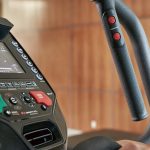Brunswick Corporation announced that it will cease production of its Bluewater Marine brands — including Sea Pro, Sea Boss, Palmetto and Laguna — with the upcoming 2009 model year, which commences July 1. As a result of this action, Brunswick will close its production facility in Newberry, S.C., by the end of June.
“The U.S. marine industry has been in a prolonged slowdown since late 2005, driven by an uncertain economy, high fuel prices, the housing slump and other economic factors that have affected consumers' confidence and eroded their discretionary spending,” explained Dustan E. McCoy, Brunswick chairman and chief executive officer. “As a result, we are assessing the recovery potential for all marine segments in which we participate, their fragmented nature, the costs of our continued presence in certain of them, and the position of our brands. Our work is ongoing and is focused on developing profitable brand positioning in all segments. With this action, we believe we will solidify our presence in the highly fragmented saltwater segment by concentrating our efforts and leveraging our resources on such brands as Boston Whaler, Triton, Trophy, and our sportfishing offerings from Hatteras, Cabo and Albemarle, while sharpening our market focus and providing necessary cost reductions.”
Brunswick plans to cease production at the Newberry facility by the end of June 2008. Approximately 175 positions will be affected by this action, and qualifying employees will receive assistance aimed at helping them transition to other employment.
“This market-driven action should not be viewed as a reflection on the performance of our employees,” McCoy added. “As always, we will work hard with all affected-employees, dealers, suppliers, communities and consumers-to minimize the disruption that this decision may cause.”
As a result of these actions, the company said it will record a pretax charge of approximately $25 million to $30 million in the second quarter of 2008 to cover asset write-downs and other costs associated with the plant closure. Of that total, approximately 75 percent of the charge is non-cash and the remainder is cash. The company estimates that it will realize annualized pretax savings of approximately $9 million stemming from this decision.















